Honda Fit: Pressure Plate Inspection and Removal
-
Remove the transmission.
-
Check the evenness of the height of the diaphragm spring fingers using the clutch alignment disc (A), clutch alignment shaft (B), remover handle (C), and a feeler gauge (D). If the height difference is more than the service limit, replace the pressure plate.
Standard (New):
0.6 mm (0.024 in) max.
Service Limit:
1.0 mm (0.039 in)
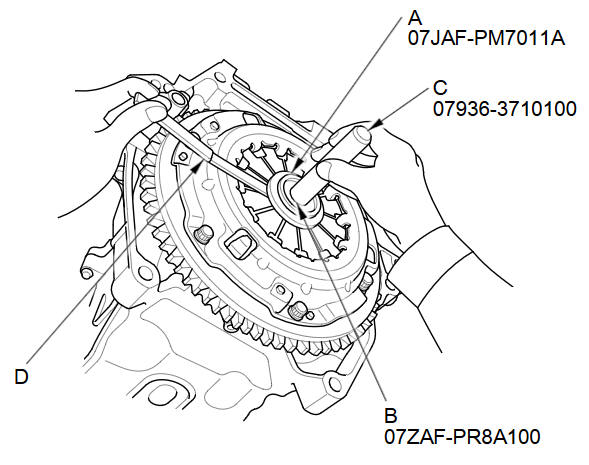
-
Install the ring gear holder (A), the remover handle (B), and the clutch alignment shaft (C).
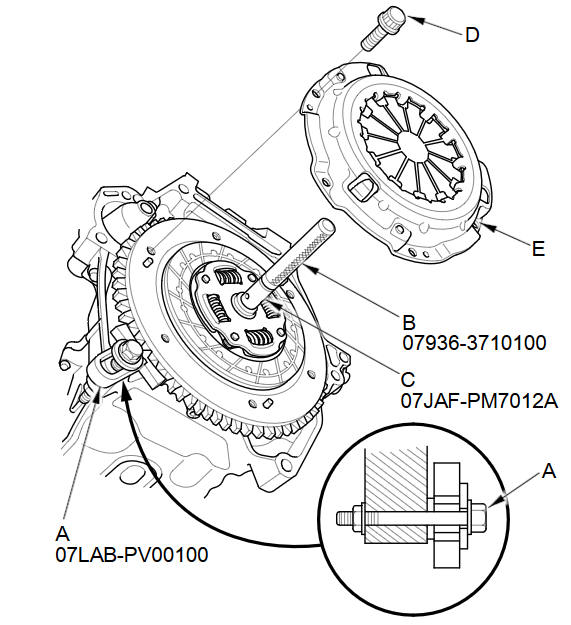
-
To prevent warping, unscrew the pressure plate mounting bolts (D) in a crisscross pattern in several steps, then remove the pressure plate (E).
-
Inspect the fingers of the diaphragm spring (A) for wear at the release bearing contact area.
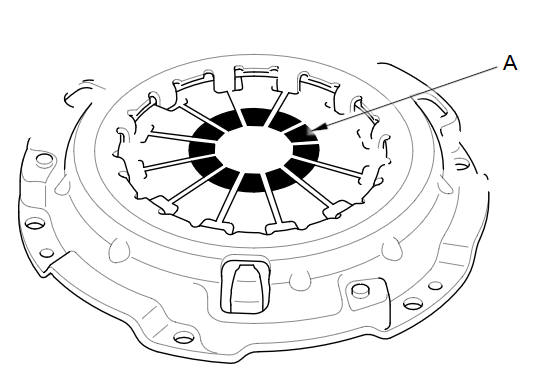
-
Inspect the pressure plate (A) surface for wear, cracks, and burning.
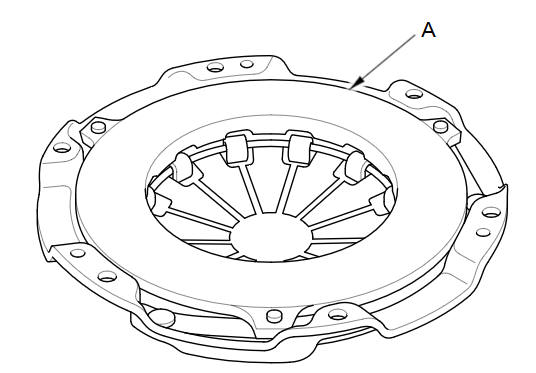
-
Inspect for warpage using a precision straight edge (A) and a feeler gauge (B). Measure across the pressure plate (C). If the measurement is greater than the service limit, replace the pressure plate.
Standard (New):
0.03 mm (0.001 in) max.
Service Limit:
0.15mm (0.005 in)
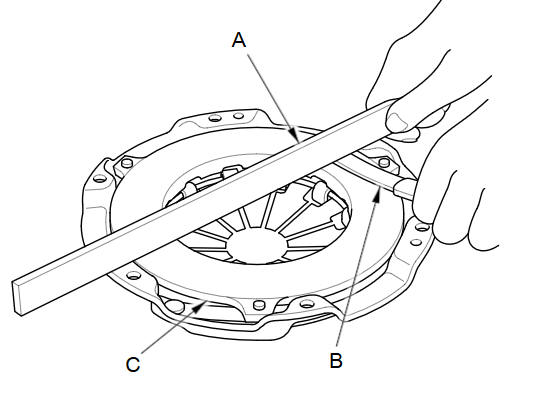
See also:
Vehicle
INFO button
► Setup ►Other
►Vehicle
Set the off-road tracking feature and correct the vehicle position displayed
on the
map.
Select an item.
The following items are availa ...
MTF Inspection and Replacement (M/T)
Park the vehicle on level ground, and turn the engine off.
Raise the vehicle on a lift, and make sure it is securely supported.
Remove the splash shield.
...
Parts and Fluids Used in Maintenance Service
The use of Honda genuine parts and fluids is recommended when maintaining and
servicing your vehicle. Honda genuine parts are manufactured according to the
same high quality standards used in Honda ...
